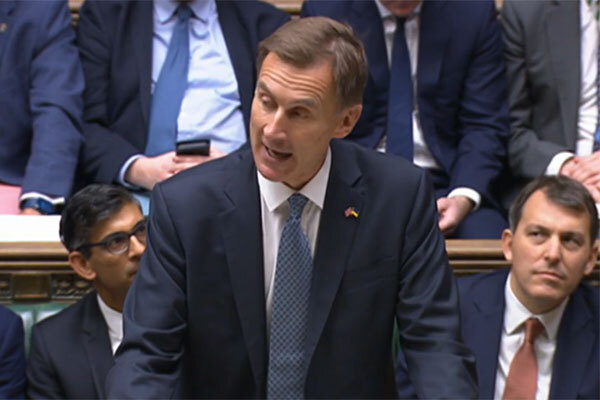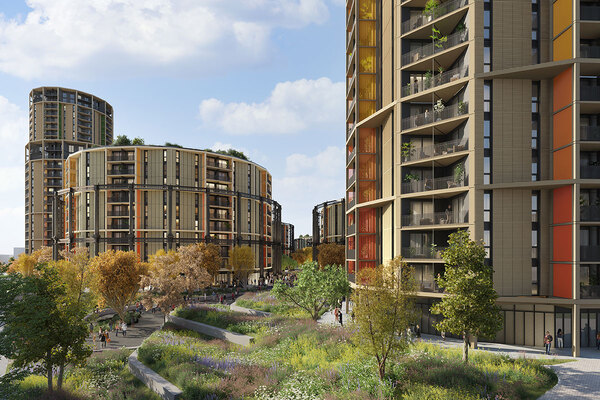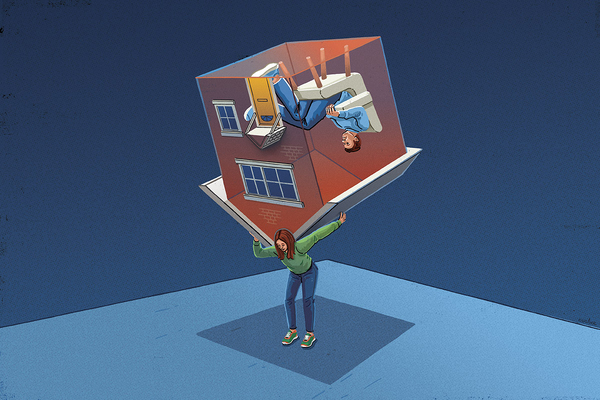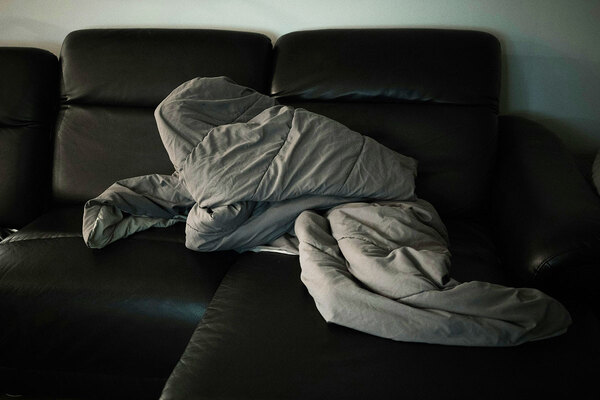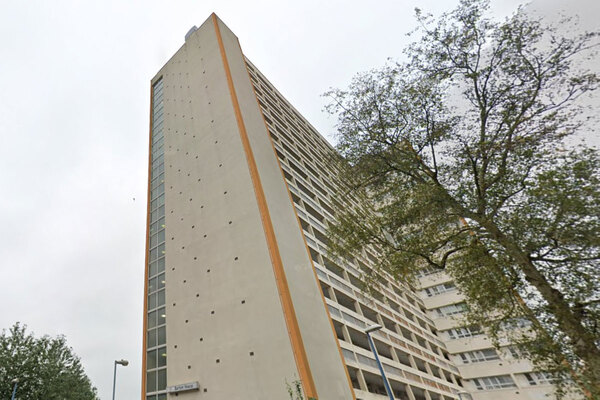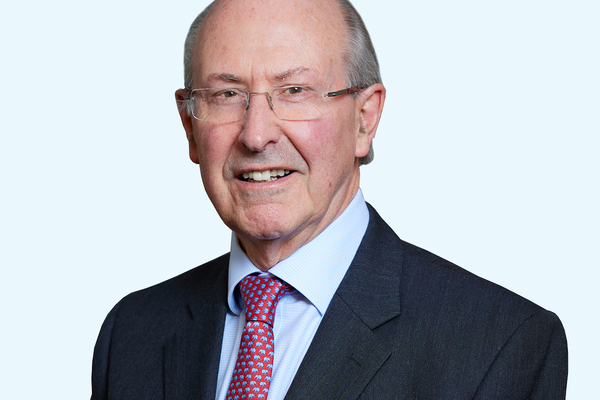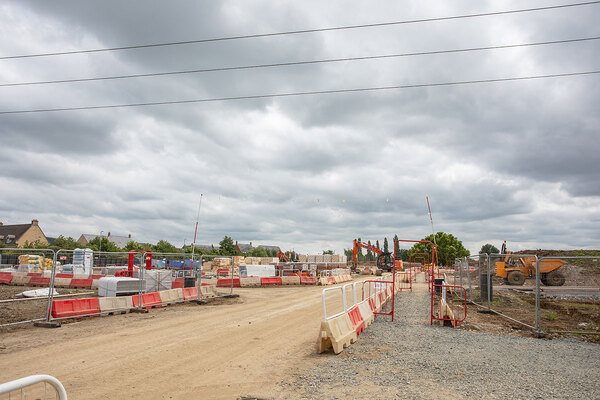Most social landlords planning full 7% rent rise, survey shows
Most social landlords in England are planning to raise general needs rent by the 7% cap the government set, a snap survey by Inside Housing shows.
More than 20 councils that have published Housing Revenue Account (HRA) budget documents intend to increase rents by the maximum allowed, citing a need for investment in homes. This is also the intention of the majority of large housing associations that responded to a survey.
However, a minority of social landlords are increasing rents by a lower percentage in light of the cost-of-living crisis.
Social housing rent rises are usually capped by the government at a maximum of the Consumer Price Index (CPI) of inflation plus 1%, set in September every year.
However, as a result of soaring inflation last year, the allowed maximum increase would have been 11.1%.
In light of this and the cost-of-living crisis, the Department for Levelling Up, Housing and Communities (DLUHC) launched a rent cap consultation that considered a rent freeze, or a 3%, 5% or 7% cap.
It originally said a 5% ceiling was preferred, because it would “strike an appropriate balance” between protecting tenants from huge rent hikes and social landlords’ budgets.
But the National Housing Federation and the Chartered Institute of Housing, the trade bodies, both warned the government that any cap below 7% could have significant effects on the sector.
Confirming a 7% cap in November, chancellor Jeremy Hunt said the changes would affect four million social housing tenants and could save them £200 next year on average.
An analysis carried out by the G15 group of London’s largest housing associations found that, over the next five years, a cap of 7% will reduce re-investable income by over £1bn.
Out of 25 local authority budget documents reviewed by Inside Housing, 21 are proposing to increase rents by 7%.
Those not raising rents by the full allowed amount include Hammersmith and Fulham Council (4.4%), Sandwell Council (5%), Swindon Council (5%) and Barnsley Council (6.5%).
Steve Heyes, cabinet member for housing and health inequalities in Swindon, said the cost-of-living crisis had left many households in financial difficulty, “including our tenants”.
“As a cabinet, we felt now was not the right time to set rents at the maximum level of 7% as set out in government guidance,” Mr Heyes said.
He added that funding provided from rents was of “direct benefit” to all tenants, as it contributed to the maintenance of the housing stock over both the short and long term.
“We have also increased the budget allocated for repairs for next year, from £13.2m to £15.8m, and we will continue to do all we can to assist people with issues such as insulation, damp and general maintenance,” he said.
Swindon has also approved a budget of £200,000 for discretionary housing payments for next year.
A spokesperson for Sandwell Council said it understood the financial pressures faced by its communities and had “ensured the increases proposed are proportionate and necessary”.
It is also proposing to invest £100,000 from its HRA into a hardship fund to support people to sustain their tenancies.
Councils increasing rent by the maximum allowed told Inside Housing that the cap will result in millions of pounds worth of lost income, which cannot be recovered unless the government changes its rent policy.
They said the 7% increase was needed to prioritise maintenance and investment in homes.
One said tenants reported that repairs and maintenance services were the most important things to them, so its proposed budget “recognises this”.
Another said the government must provide funding for councils to invest in their homes.
Several councils said they had added hundreds of thousands of pounds to hardship funds for tenants who were struggling.
In response to a snap survey of 20 of the largest housing associations, all of the nine that responded confirmed they were raising general needs rents by 7%.
This includes Clarion, Metropolitan Thames Valley (MTVH), Bromford, Guinness, Notting Hill Genesis (NHG), Places for People, Together Housing, Jigsaw and Sovereign.
Responses from landlords are included below.
Though social rents will go up by 7% at Jigsaw, the landlord is raising affordable rents by 5% as part of a “package of initiatives focused at alleviating the cost-of-living crisis for our tenants”.
Clarion said it had a comprehensive offer of support available to residents and in November announced a new £500,000 fund to help residents manage through the cost-of-living crisis.
NHG said it would be writing to tenants, highlighting the support they could receive.
A spokesperson for Guinness said that all rents were subject to an affordability test and, as a result, a very small number of homes would have no increase.
Geeta Nanda, G15 chair and chief executive of MTVH, said every G15 member has “carefully considered” the decision on rent setting for next year.
“The need to continue investing in the homes we provide, alongside considering the challenges many residents are currently facing, has been scrutinised by all our boards as part of this decision-making.
“Ensuring people have the support they need is precisely why we campaigned hard for the government to increase social security support in line with inflation.
“The welcome decision by government to uprate this support means that the majority of general needs renters will, rightly, continue to have their housing costs met,” she said.
Ms Nanda said the government’s decision on rent capping struck the “right balance”.
But she said implementing the cap across the G15 would reduce resources it can invest into homes and services by around £1bn over the next five years.
“Alongside addressing building safety issues, which are estimated to cost G15 members around £4bn over the next decade and the increased investment members are making to improve conditions in existing homes, this will mean difficult choices on how and where we invest resources.
“This makes it all the more important that we have a new long-term rent policy, supported by government,” she said, adding that it was “essential” for organisations to be able plan how they can meet the needs of residents, and to invest in existing and new affordable homes.
Ms Nanda said: “Alongside bringing forward a consultation on the post-2025 rent standard, a key measure that should be considered is the reintroduction of rent convergence.
“Around one in three homes G15 members provide are still below target rent. Combined with the impact of the rent cap next year, the lack of a rent convergence mechanism reduces investable income by over £2bn by 2030 for G15 members.”
She added that any resident who was worried about their finances should contact their housing provider as soon as possible.
“All G15 members have increased emergency cost-of-living support that is available, as well as helping tens of thousands of residents with specialist advice and signposting.
“We have also all pledged that no one will be evicted from their home as a result of financial hardship, where they are engaging with their housing association to get their payments back on track,” Ms Nanda said.
Responses
A Clarion spokesperson said: “We welcomed the government’s balanced decision on a social rent cap.
“We believe 7% represents a fair settlement, providing residents with a lower rate of increase, yet fair for social landlords, allowing us to continue to invest.
“That said, we understand there are real pressures on the cost of living and this was not an easy decision for us to make.
“Our board commissioned research to understand the impact of this increase on our residents before making this decision.
“The rent our residents pay will continue to be substantially lower than the average in the private rented sector and we are committed to keeping rent as low as possible over the long term.
“The need for an increase reflects the national economic situation and the very significant rise in inflation.
“UK inflation (according to the Consumer Price Index) was running at 10.1% in September and many of the goods, materials and services we need to invest in homes and services are increasing in price faster than the headline rate of inflation.
“We have a comprehensive offer of support available to residents to help manage their money and optimise their income, and in November announced a new £500,000 fund to help residents manage through the cost-of-living crisis.
“We urge any resident who is struggling to pay their rent to contact us as soon as possible. We are here to help.”
A Notting Hill Genesis spokesperson said: “Our group board met last week to discuss rents for 2023/24 and we will be capping rents for social housing tenants in our general needs homes, as well as for shared owners, at 7%.
“While this is significantly lower than the typical formula of consumer price index (CPI) + 1%, we do recognise this is still a considerable rise and will be unwelcome for many of our residents.
“When we write to them about their rent levels next month, we will highlight the support-services section on our website where they can seek financial and employment advice, alongside other kinds of assistance.”
Sign up for our tenancy management newsletter
Already have an account? Click here to manage your newsletters

